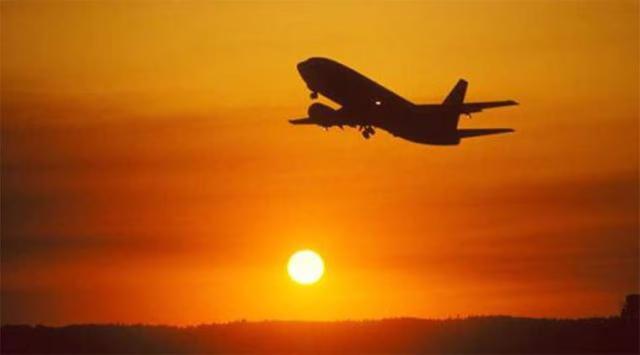
Class 12 Physics & Math requirement for becoming commercial pilot might be scrapped: Report
In a move that could open doors to new opportunities for students from diverse backgrounds, the Directorate General of Civil Aviation (DGCA) is reportedly considering scrapping the current rule that requires students to have studied Physics and Math in Class 12 to be eligible for commercial pilot licence training. According to a recent report, the DGCA is planning to relax the eligibility criteria, allowing students from arts and commerce streams to pursue a career in commercial aviation.
For decades, commercial pilot training in India has been restricted to students who have studied Science and Math in Class 12. This rigid requirement has often led to a limited pool of candidates applying for commercial pilot training, as many students from arts and commerce streams have not had the opportunity to develop a strong foundation in Physics and Math. However, the DGCA’s proposed move could change this landscape, providing a more inclusive and diverse pool of candidates for the aviation industry.
The decision to relax the eligibility criteria is expected to address the industry’s growing need for pilots. The aviation sector is experiencing rapid growth, driven by increasing air travel demand and the expansion of low-cost carriers. As a result, there is a pressing need for more pilots to meet the rising demand. By relaxing the eligibility criteria, the DGCA aims to tap into a wider pool of candidates, including those from arts and commerce streams, who may not have previously considered a career in aviation.
Moreover, the DGCA’s proposed move is expected to promote gender diversity in the aviation industry. Historically, the aviation industry has been male-dominated, with women comprising a relatively small percentage of pilots. By relaxing the eligibility criteria, the DGCA aims to encourage more women from arts and commerce streams to pursue a career in aviation, which could lead to a more inclusive and diverse workforce.
The proposed changes are expected to be announced in the coming weeks, following a review of the existing rules and regulations. The DGCA has been consulting with various stakeholders, including the Indian Aviation Academy, the International Air Transport Association (IATA), and the International Civil Aviation Organization (ICAO), to ensure that the changes align with global standards and best practices.
The proposed changes are likely to be welcomed by students from arts and commerce streams who have always been interested in pursuing a career in aviation but have been deterred by the rigid eligibility criteria. This could lead to a more diverse and inclusive aviation industry, with a broader range of candidates from diverse backgrounds.
While the proposed changes are expected to have a positive impact on the aviation industry, there are also concerns about the potential challenges that students from arts and commerce streams may face in meeting the requirements of commercial pilot training. Commercial pilot training is a demanding and rigorous process that requires a strong foundation in Physics and Math. Students from arts and commerce streams may need additional support and training to develop the necessary skills and knowledge.
Moreover, there are concerns about the potential impact on the quality of training and the safety of air travel. While the DGCA’s proposed move is aimed at promoting diversity and inclusivity, it is essential to ensure that the changes do not compromise the safety and quality of training. The DGCA will need to ensure that students from arts and commerce streams meet the necessary academic and technical requirements to become commercial pilots.
In conclusion, the DGCA’s proposed move to scrap the requirement for students to have studied Physics and Math in Class 12 to pursue a career in commercial aviation is a significant development that could have far-reaching implications for the aviation industry. While the proposed changes are expected to promote diversity and inclusivity, it is essential to ensure that the changes do not compromise the safety and quality of training. As the aviation industry continues to evolve and grow, it is essential to adapt to changing needs and ensure that the industry remains inclusive and diverse.






